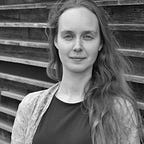Answering the Unanswerable
When Poets Ask Questions — Part II
The poet, having recently queried the state of the world, turns now to questions for which no answers can suffice:
What is Being?
That which arises.
What is the Self?
The totality of Being.
What is Wisdom?
Remembering what has been forgotten.
What is the Numinous?
An expression of the heavenly on earth.
What is Sacrifice?
Loving that which must die.
What is Faith?
A trust which cannot be broken.
What is Truth?
That about which the mind cannot delude itself.
What is Beauty?
The specification of an Ideal.
What is Goodness?
The Self’s selfless desire.
What is Suffering?
The weight of all that is irrevocable.
What is Joy?
The profoundest acceptance.
What is Life?
The activity of the Self.
What is Heaven?
That which cannot be investigated.
What is Metaphysics?
An investigation of the uninvestigable.
What is Redemption?
The recovery of that which has been lost but not destroyed.
What is the Sacred?
That towards which we orient our being.
What is Reality?
The meeting of opposites.
What is God?
The source of existence.
What is Love?
Participation in another’s being.
What is Nature?
The conversation of Being.
What is Death?
The space on the other side.
What is Freedom?
The soul’s maximal state.
Having tried — perhaps unwisely — to supply answers where there can be none, the poet at this point withdraws, and falls silent once more.
